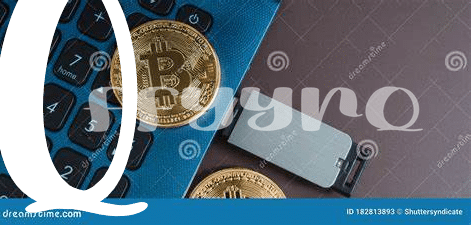Unpacking Cold Storage: What’s in the Box? 📦

Imagine opening a treasure chest, but instead of gold and jewels, it’s designed to protect something equally valuable in today’s digital age: your cryptocurrency. That’s essentially what you’re doing when you explore the realm of cold storage. In the simplest terms, cold storage refers to keeping your cryptocurrency offline, away from the reach of online thieves and hackers. The treasure box in this scenario is a hardware wallet, a physical device that looks somewhat like a USB stick but is fortified with sophisticated security measures to safeguard your digital assets. Upon unboxing, you’ll typically find the wallet itself, a USB cable to connect it to your computer for initial setup, a recovery sheet to jot down your recovery phrase (a critical piece of information that acts as the key to your funds), and often, a user guide to navigate you through the setup process. It’s a minimalist yet powerful package designed to serve as the guardian of your cryptocurrency. Let’s take a peek at what types of hardware wallets are out there:
| Brand | Appearance | Notable Features |
|---|---|---|
| Ledger | Compact, sleek | Robust security, supports multiple cryptocurrencies |
| Trezor | Small, keychain-friendly | User-friendly, open-source software |
| KeepKey | Larger, premium feel | Simple backup and recovery, supports various currencies |
Each brand brings something unique to the table, but they all share a common goal: keeping your digital treasure safe and sound.
The Key Keepers: Leading Hardware Wallet Brands 🔑
Imagine a world where your digital treasures are kept safe, not by a heavy-duty safe, but by sleek and sophisticated gadgets that fit right in your pocket. This world isn’t a figment of science fiction but the here and now, thanks to hardware wallets. These gadgets, resembling USB drives, are your stronghold against digital thieves waiting to swipe your digital gold. From the pioneers like Ledger and Trezor, who have been in the game since the early days, to innovative newcomers offering slim designs and cutting-edge security features, there’s a hardware wallet out there that’s just right for keeping your cryptocurrencies secure. Each brand brings something unique to the table, whether it’s top-notch security protocols, user-friendly interfaces, or compatibility with a wide range of cryptocurrencies.
In the rapidly evolving digital currency space, it’s crucial to stay informed about the tools that keep your investments safe. For a deeper understanding of how the blockchain technology behind these currencies is shaping up, check out https://wikicrypto.news/understanding-bitcoins-intrinsic-value-beyond-the-hype. This resource sheds light on the intrinsic value of bitcoins beyond the buzz, offering insights into the underpinnings of what might be the future of finance. As you navigate through the options, remember, the best hardware wallet is the one that aligns with your specific needs, ensuring your digital assets are protected, accessible, and in line with the future of money.
Setup Simplified: Getting Your Wallet up and Running 🚀

Imagine you’ve just unboxed your shiny new hardware wallet, eager to secure your digital treasure. The thought of setting it up might seem daunting at first, but it’s surprisingly straightforward. Think of it as setting up a new smartphone. Once you power it on, the device guides you through every step – from jotting down your recovery phrase (like a super-secret key to regain access if you ever lose your wallet) to choosing a secure PIN. It’s a breeze! 🌬️🔒 Manufacturers have made these wallets user-friendly, ensuring that even if you’re not tech-savvy, you’ll have your digital coins safely stored in no time. Plus, with how-to videos and a supportive community ready to help, you’re never alone in this journey. 🚀👥 Keeping your digital assets safe has never been easier, so let’s embark on this adventure together, ensuring peace of mind in the bustling world of digital currency.
Security Showdown: How Safe Is Your Digital Gold? 🛡️

Imagine your digital treasures stored safely, like precious jewels in a high-tech vault. That’s the peace of mind hardware wallets promise, offering a fortress for your digital currency away from online threats. But just how impenetrable is this fortress? While these devices are among the safest options for storing digital assets, understanding their security layers is crucial. They physically isolate your digital cash from the internet, significantly reducing the risk of online theft. Yet, no solution is entirely foolproof. Potential vulnerabilities could include physical loss or damage, and sophisticated phishing attempts that trick you into revealing critical information.
For anyone diving deeper into the world of digital currency security, the journey doesn’t stop at buying a hardware wallet. It’s about continuously staying informed and adopting best practices to safeguard your digital gold. Embracing additional layers of security, like keeping your recovery phrase in a secure location, can enhance your wallet’s defense. For more on keeping your digital investments secure and navigating through the complexities of digital currency security, visit bitcoin’s influence on popular culture and media regulatory outlook. This resource sheds light on the importance of vigilance and the constant evolution of security measures in the digital realm. 🌐🛡️💡
Coin Compatibility: Not All Wallets Fit Every Pocket 💰
Imagine you’re at a shopping mall looking for pants. Just like pants, digital wallets don’t come in a one-size-fits-all. This is where knowing what types of digital coins you want to keep safe comes into play. Some wallets are like those stretchy, universal-fit pants, accommodating a wide range of sizes – or in this case, different kinds of digital money. Others, however, might only fit one specific style, which could be a bit of a bummer if you’re looking to diversify your digital coin collection.
Now, poking around to see which wallet works with your digital coins might sound tedious, but it’s pretty crucial. Here’s a simple breakdown to help you see which popular wallets support various types of digital money:
| Wallet Brand | Supported Coins |
|---|---|
| Ledger | Bitcoin, Ethereum, Ripple, and more |
| Trezor | Bitcoin, Litecoin, Dash, and more |
| KeepKey | Bitcoin, Ethereum, Litecoin, and more |
Keep in mind, the “and more” part means there’s a whole lot of other coins supported, so it’s worth doing a bit of digging to see if your digital cash fits in the wallet you’ve got your eye on. Remember, taking a moment to check this can save you from a headache later!
Maintenance and Management: Keeping Your Wallet in Shape 🔧

Just like a well-oiled machine, your digital wallet thrives on a bit of TLC to keep it ticking. Imagine this: every few months, you take a moment to check on your hardware wallet, ensuring it’s updated with the latest software to fend off any new cyber threats. It’s not just about creating a fortress; it’s also about keeping the keys to the castle fresh and functional. 🛠️💼 Imagine stumbling across a shiny new digital coin that catches your eye, only to find your wallet isn’t compatible – a quick firmware update could open doors to new treasures. And let’s not forget, keeping a clean and organized record of your transactions can save the day if things get tangled. Think of it as spring cleaning, but for your digital assets. For those eager to dive deeper into the crypto world, learning about common misconceptions can be enlightening. Get savvy with a comprehensive guide on how to create and use a bitcoin paper wallet regulatory outlook, debunking myths and setting the record straight on digital currencies. 📚🔍
